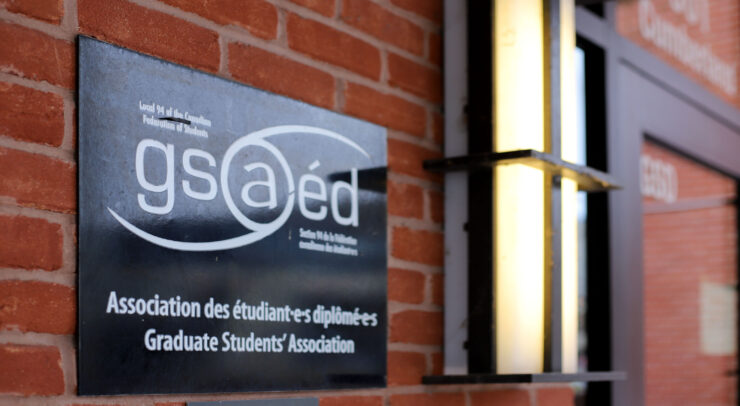Counselling and Coaching unit releases new seven-step program this fall
After two years of development, this fall marks the roll out of a revamped Counselling and Coaching Service from the University of Ottawa’s Student Academic Success Service (SASS).
Adapted from the stepped care model comes a seven-step pathway, with different access points for students to engage with throughout their academic journey.

In an interview with the Fulcrum, Sylvie Tremblay, director of SASS, said this model puts proactive measures at the forefront, and called it a “framework of intervention.”
Genevieve Brabant, manager of SASS’ Counselling and Coaching unit, said this model allows students to be “self-directed in their own development,” where SASS will be a supporting player.
With this change there are seven options for students looking to access care, with four entirely new services and three updates to current SASS Counselling and Coaching services.
Among the new services is a walk-in clinic staffed with 16 professional counsellors. In one collaborative session, a student and counsellor will develop an action plan and find the best options in the moment. This replaces the current triage procedure which has a current wait time of approximately two weeks, and is available now at 100 Marie Curie on the fourth floor.
In addition to this, a new program of therapeutic group counselling will be facilitated by SASS counsellors. In groups, students will be able to talk aided by what Brabant calls, “eclectic best practices,” from therapies such as, cognitive, behavioural, and holistic. The program is considered transdiagnostic, meaning students who attend group counselling do not need to have a specific diagnosis.
A self-directed online module system, Therapy Assisted Online (TAO), will also be rolling out in October to provide guidance on topics ranging from anxiety to healthy habits. Students can work through these resources independently, but can also supplement the process with periodic counselling sessions.
Finally, SASS has introduced a map of options available to students on campus, from existing peer-to-peer workshops to faculty mentoring services.
These new services come alongside an update to SASS’s website, expected to be live at the end of the month, as well as the same counselling and external referral services SASS currently offers.
Brabant called the revamping process, “a mapping of the ecosystem.” By laying out all the services and options available to students, the Counselling and Coaching team hopes students will take a proactive role in their academic and mental-health journey.
Timelines for the release of each new and updated option remain fluid and will be rolled-out slowly over the course of the fall term. Tremblay said this is because moving to a proactive and collaborative approach is a big shift for both the SASS Counselling and Coaching team, but also for U of O students.
She said the service will see “two-to-three years of continuous improvement,” as she views these updates as part of a larger reframing of the mentality surrounding mental health and academic success.
Brabant views this new stepped pathway as a push for “mental health literacy,” and as a shift in mentality for students, the general public, the university, and the SASS team itself.
Despite the revamped model, Tremblay told the Fulcrum that there are no illusions within the team.
“We don’t pretend this will fix everything, but it is a big step in the right direction.”





